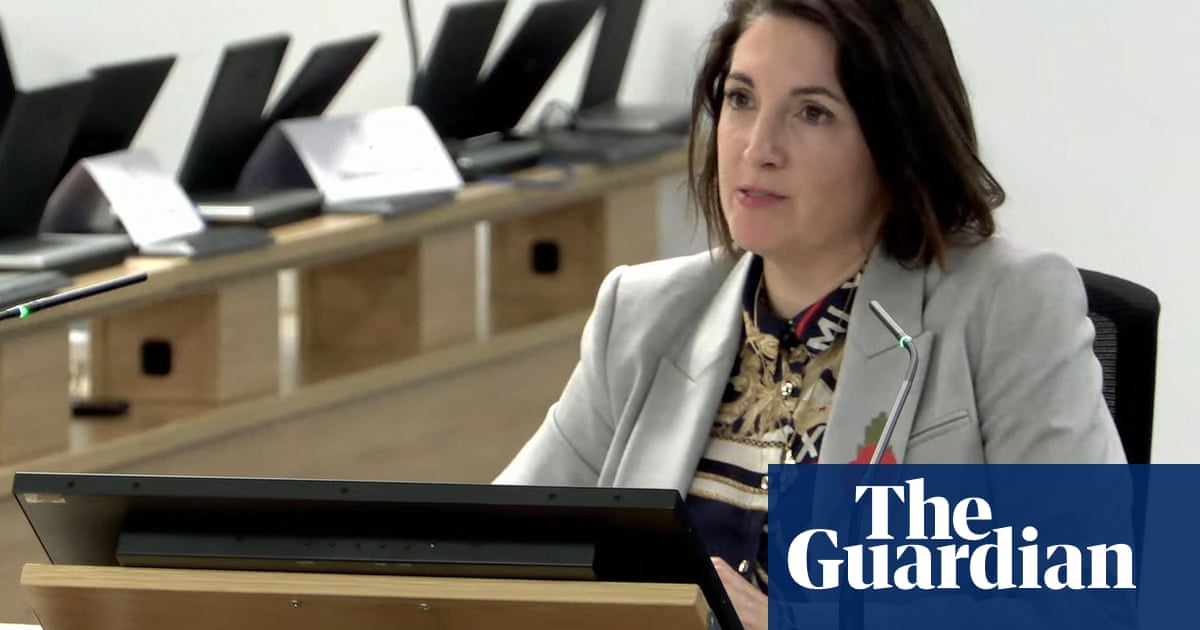
It was unusually warm on 20 May 2020, with the mercury hitting 26C. The windows of No 10 Downing Street were still displaying rainbows drawn by children in support of the NHS and Boris Johnson had enjoyed an early morning run in shorts and T-shirt.
The sunny weather coincided with a retrospectively misplaced sense of optimism inside the building that the worst of Covid was now behind us despite strict national lockdown measures still in place. Five days earlier, staff in a celebratory mood had enjoyed impromptu drinks in the garden of No 10 and inside their offices, with Johnson telling one that they deserved their drink for “beating back the virus”.
In public, cabinet ministers were sternly reminding people not to mix with more than one other person from outside their household. Schools and many businesses remained shut, people were dying alone, and many were suffering terrible loneliness after two months locked down.
But according to those working in Downing Street at the time, there was a hopeful feeling at the top of government that the deadly wave of Covid was passing and the country would reopen before long. One insider said it verged on a “saviour complex”, whereby the hard work and sense of having triumphed over the virus divorced those inside the No 10 sanctuary from the reality of rules outside.
It was against this backdrop that Martin Reynolds, Johnson’s principal private secretary, emailed more than 100 colleagues working in No 10 asking them to “join us” for a “bring your own booze” party later that day from 6pm.
“After what has been an incredibly busy period we thought it would be nice to make the most of the lovely weather and have some socially distanced drinks in the No 10 garden this evening,” he said.
About 40 staffers attended the event, with long tables laid out in the garden with crisps, crudités and sausage rolls. “It was picnic stuff in plastic boxes, I think, not much ceremony,” one said. But the alcohol was flowing freely and people were “boozing”, they added.
The prime minister, recently recovered from a spell in hospital with Covid, went along with his soon-to-be wife, Carrie, who had recently given birth to their son, Wilfred.
At the time, several of those working in the building knew it was an ill-judged move and chose not to go, with one calling the idea of the gathering “absolutely mental”.
Another person who claims to have raised the alarm is Dominic Cummings, the prime minister’s senior adviser at the time, whose lockdown-busting travels were revealed by the Guardian and Daily Mirror two days later. A fortnight on, he appeared in the same No 10 garden to defend himself against accusations he broke the rules. Another No 10 source told the Guardian they also mentioned at the time that the 20 May party was not advisable.
Former civil servants remarked on how unusual the Reynolds invite appeared to be, coming from a senior official. No 10 has declined to answer any questions about whether the gathering was sanctioned by Johnson. But staffers said it was not out of character for Reynolds. One former aide said the senior No 10 civil servant – who had previously worked alongside Johnson in the Foreign Office – was well liked by the prime minister. “He’s good at ‘not hearing things’ when the things being said are off-colour. He’s not uptight,” they claimed.
Johnson has so far backed Reynolds to stay in post, while the inquiry into the party by veteran civil servant Sue Gray is ongoing. But there is a widespread feeling in Westminster that he will not survive in his job for long and rumours that Johnson is casting round for possible replacements. Reynolds, the former ambassador to Libya, is rumoured to be heading back to the diplomatic service, with one source saying he was keen to return to the Middle East.
“Martin [Reynolds] literally sent an invitation to a large-scale party, bring your own booze, which totally breaks the rules; he can’t escape the rap,” one former staffer said.
One Whitehall source who spent time in No 10 said they could understand the pressures junior staffers were under during the period. “They worked in the office the whole time when their colleagues were working from home. And you are working on something so important, it gets a bit ‘saviour complex’. You lose touch with how things are perceived.”
Another source with knowledge of two No 10 parties later in 2020 said there had been an element of entitlement about the decision to ignore the rules, with a common theme that those working there felt they “deserved” the privilege after all they had been through.
A former No 10 aide said this “bubble mentality” when it comes to sticking to the rules – evident from Cummings and his own trips during lockdown, Matt Hancock and his affair with an aide in breach of social distancing rules, and the multiple examples of Downing Street parties – goes a long way to “explain – but not excuse” the goings-on. “It is hard to see Sue Gray accepting this as any sort of mitigation,” they said.












